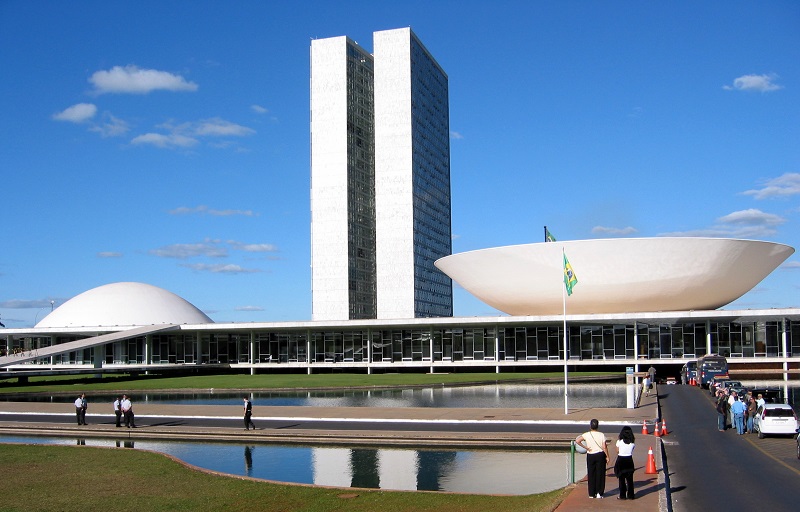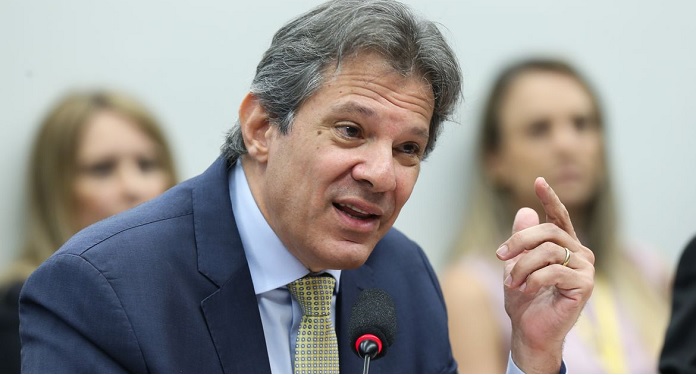The PM for sports betting was published in the Union Official Gazette on July 25th. That is, Provisional Measure 1,182/2023 modified Law 13,756/2018 and allowed the taxation of companies in the sector, the famous bookmakers.
According to an article published on the website specialized in the legal segment, Conjur, thevsports betting PM can be considered as the starting point for the regulation of the Brazilian sector.
However, the proposal must be considered within a period of 120 days by the National Congress in order not to lose its validity. In addition, parliamentarians can – and are already proposing amendments – to the project.
The issue of the formalization of the Brazilian sports betting market was deepened in the text published this Monday, the 31st. Check out the full text below!

Sports betting PM is just the first step towards regulation
Provisional Measure 1,182/2023, published last Tuesday (7/25) in the Official Gazette, amends Law 13,756/2018 and provides that companies operating fixed quota lotteries, known as “bets”, will be taxed in 18% on revenue obtained from games, excluding payment of prizes to players and Income Tax due on prizes.
Lawyers consider the measure the starting point for regulating the sports betting market, but point out that many details will still be discussed in Congress and also depend on regulation by the Ministry of Finance.
In the opinion of criminal lawyer André Damiani, founding partner of Damiani Sociedade de Advogados, the federal government’s initiative is “a first step in the search for the regulation of sports betting in the country”.
According to the lawyer, who specializes in Economic Criminal Law, since the advent of Law 13,756/2018, which allowed the so-called “fixed odds bet”, the betting market has grown exponentially in Brazil, which has become the second largest betting market in the world — responsible for moving billions of dollars.
So far, bookmakers operated freely, without specific rules regarding their rights and duties, such as the obligation to adopt mechanisms to combat money laundering, tax payment, consumer protection rules.
“In addition to the tax issue, the proposal adopted by the federal government is positive, as it signals its willingness to take the necessary measures to regulate, once and for all, this extremely lucrative market, but which has been the scene of scandals in the recent times”, emphasizes Damiani.
Although she also considers the edition of PM 1,182 “a step forward”, Danielle Franco, head of Administrative Law at GVM Advogados, observes that the implementation of fixed odds bets will still take a while to materialize, since it will still depend on specific regulations from the Ministry of Finance, pursuant to article 29, paragraphs 2 and 4 of Law No. 13,756/18, as amended by the aforementioned MP.
Match-fixing
“The mitigating measures for match-fixing and corruption in sporting events will also depend on regulation by the same ministry — common in football matches and on the agenda of recurrent scandals”, says Danielle Franco.
She explains that “the operator of the bookmaker must report any suspicion of manipulation to the Ministry of Finance within five days of becoming aware of any suspicious act”.
Anna Florence Anastasia, specialist in Administrative Law at GVM Advogados, points out that, despite progress in the attempt to “curb the illegal activities of companies that often do not even transfer amounts to gamblers, the PM does not indicate which means (physical and material) ) will be used to ensure the supervision of these activities”.
Even so, the specialist considers positive “the high penalties foreseen for companies that continue to operate sports betting sites illegally. Low penalties would not be enough to inhibit these illegal operations”.
Anna Florence still considers it discouraging for companies that want to operate legally in this type of betting, the fact that the PM provides that the service can be delegated through concession, authorization or permission.
“The last two forms do not conform to the service that the federal government intends to delegate. This is because authorization and permission are unilateral and precarious acts of the public administration, which means flexibility for the public power to change or terminate the outsourcing of the service, without obligation to indemnify the individual”, he emphasizes.
Bernardo Freire, a partner at Wald, Antunes, Vita e Blattner Advogados, considers the initiative of the federal government “extremely important, resolving an issue that remained open for more than four years in the previous administration”. “The measure is healthy for all those who work in the sector, who fought hard for its elaboration”.
Freire observes that the details are still to be discussed in Congress, “but important predictions have already been made for the adhesion of the largest number of companies, among which the prohibitions for those who intend to remain illegally, who will have access to technology, media, sponsorships and payment methods”.
“However, the taxation was above what is practiced in other countries, which will require a detailed analysis, since it is an issue that has decisive potential to keep interested parties from legalizing, both gamblers and companies. But the importance is even greater with regard to the government’s position, in the bias of seeking the regularization of an activity that can generate important tax collection”, he comments.
Definition of skills
Camila Fernandes, partner in charge of the Civil Litigation department at Nelson Wilians Advogados, also points out that the PM depends on regulation by the Ministry of Finance regarding the form of authorization to explore the activity.
“From reading the provisions of the PM, it can be understood that the authorization can only be granted by the Ministry of Finance. However, in 2020, the STF decided that although it is the exclusive competence of the Union to legislate on lottery activities, this fact does not prevent the material competence of the states to explore lottery activities and to regulate this exploitation”, he points out.
Camila recalls that the Federal Constitution provides in its article 25, paragraph 1, that “the powers that are not prohibited by this Constitution are reserved for the states” and thus, there being no device that makes the exploitation of lotteries exclusive competence of the Union, no federal law may restrict the material competence to operate a lottery service to a given entity.
“The fact that the 1988 Constitution gave the Union legislative competence over the matter does not affect the material exploitation of the service by the States. In summary, the Union edits national guidelines, while state legislation institutes lotteries in their territories only conveying the material competence granted to them by the Constitution. State legislation would only offend the Federal Constitution if it instituted a discipline or type of lottery not provided for by the Union itself, since there should be no state discipline that exceeds what is provided for at the federal level”, he adds.
The criminalist Daniel Bialski defends “any legislation that regulates or even improves omissions from existing norms”. “Regulation prevents unpleasant, fraudulent and even criminal situations that may occur. I hope that this tone remains and that it is not just and only in specific situations, but global, because there are many laws in Brazil that need improvement”, he says.
Bialski understands that sports activities and companies, managed by legal entities and individuals, who exploit this market directly and indirectly, need, “in fact, to have supervisory and sanctioning bodies in all spheres”.




















































